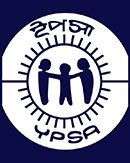BACKGROUND
- Literacy for All is a human right and essential for human resources development. The constitution of the country has clearly spelt the kind of the basic education the country must have and it enjoins upon the government to impact such education within a given time frame. As a signatory to the world conference on EFA held in Jomtien in March 1990, World Summit for Children held in New York in September 1990, EFA Summit on Nine High Population Countries held in New Delhi in 1993, the Government of Bangladesh was committed to achieve 62% literacy by the year 2000 AD.
- To fulfill the commitment, Ministry of Primary and Mass Education (MoPME) through Directorate of Non-Formal Education (DNFE) undertook 4 NFE projects including Post Literacy and Continuing Education projects.
- The project approved by ECNEC in April 2002, the project was supposed to be implemented during July 2002-June 2007. Starting in October 2002, the project made slow progress and with the abolition of its Executing Agency in October 2003, it becomes non-operational. The project remained non-operation for nearly three years. The government established Executing Agency, Bureau of Non-Formal Education (BNFE) in 2005 and approval of Non-Formal Education Policy Framework in 2006. The project operation has again started on June 2006.
- The purpose of post literacy and continuing education project is (as the name suggests) to provide post literacy and continuing education to the neo literate covered under different Non-Formal Education projects and any others program organized by CBAs or NGOs and primary school dropouts. In the post literacy course the objective is to consolidate, upgrade and fine-tune the acquired skills of neo literate and in the continuing education course the objective is to provide them with skill training from the list of available and suitable skills considering the market demand and supply situation. The post literacy course will virtually work as a bridge between basic literacy and continuing education and will facilitate the basic literate to go for continuing education. Continuing education is a broad concept, which encompasses all learning opportunities. In this project the continuing education course includes skill training, awareness as well as increased practice of basic literacy skills by the neo literate. The purpose of continuing education is to improve the quality of life of the learners through enhanced income and greater enlightenment, which would lead to general development of the quality of life of the learners and the society as a whole.
A. Basic Information of PLCEHD-2
Name of the Project : Post Literacy and Continuing Education for Human Development Project – 2 (PLCEHD-2)
ADB loan number : 1881-BAN (SF) / TA 3899-BAN
Executing agency : Bureau of Non-Formal Education (BNFE) under the Ministry of Primary and Mass Education (MoPME)
Objective of the Project:
General objective of the project is Development of human resources of the country through implementation of post literacy and continuing education programme.
Specific objectives of the project are:
- to include about 1.6 million neo-literate in post literacy programs to consolidate, maintain and upgrade the literacy skills they have acquired previously;
- to help in developing their life pattern by increasing their income through providing technical skills training;
- to eliminate gender disparity and establish social equitability expediting women empowerment;
- to involve the target population in a life-long educational process and to develop them as enlightened and productive citizens;
- to prepare a long-term planning for human resource development; and
- to strengthen the capacity of agencies involved in non-formal education in order to strengthen literacy and continuing education programs and to make it more effective;
Project Location
| DIVISION |
DISTRICT |
Number |
Number |
|
Rajshahi |
Panchagarh, Nilpharnari, Rangpur, Kurigrarn, Nawabganj, Natore |
6 |
39 |
|
Khulna |
Kushtia, Bagerhat, Meherpur, Jhenaidah, Satkhira |
5 |
31 |
|
Barisal |
Barisal, Bhola, Patuakhali |
3 |
24 |
|
Dhaka |
Sherpur, Tangail, Manikganj, Dhaka, Narayanganj, Munshiganj, Faridpur |
7 |
47 |
|
Sylhet |
Sunamganj, Sylhet, Moulvibazar |
3 |
27 |
|
Chittagong |
Brahmanbaria, Chandpur, Feni, Chittagong, Cox’s Bazar |
5 |
42 |
|
Total |
29 |
210 |
|
Components
- Project Components and present status of progress
The Project has four major components:
- Implementation of Policy Framework
- Development, Dissemination, and Adaptation of Curricula for PLCE Programs,
- Capacity Building for Involved Organizations, and
- Implementing PLCE Programs
